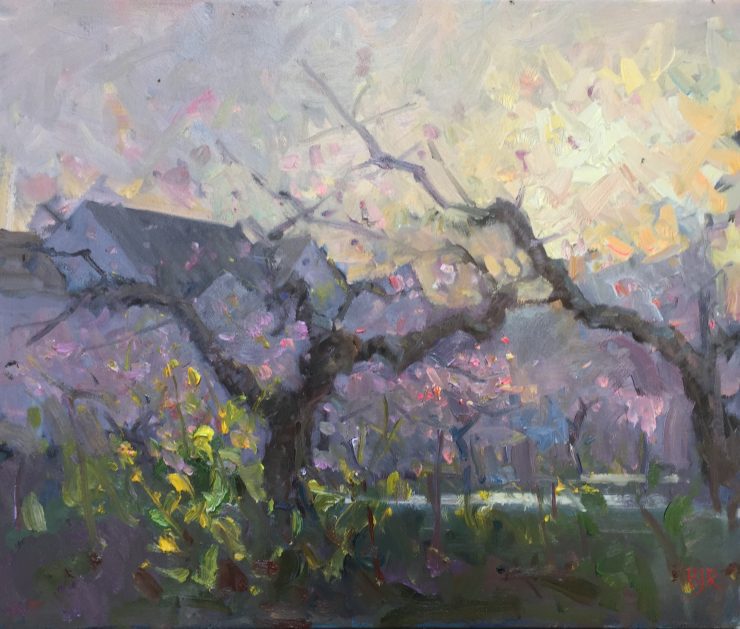This is a package of all the six eBooks in the Virtual Art Academy® Building Block™: Observation.
The realism in your painting comes from accurately depicting in paint what you see in front of you. You do not need to learn how to paint trees, skies, rocks, water, and so on. You need to learn to see trees, skies, rocks and water. Once you see it, painting is easy. When a student says “I can’t seem to mix the right color,” the problem is rarely in the mixing but nearly always in an inability to see the color. Not only is realism affected by your ability to observe color accurately, but so too is color harmony. The color of sunlight together with the effects of atmospheric perspective and reflected light often (but not always) produce a natural color harmony. If you can observe this harmony accurately, then your painting will have automatic color harmony. The color problems in our paintings are often our left brain taking over and telling us what the color should be as opposed to what we are actually seeing.
Course Unit 1 – Values
value scale – comparing values – value finder – black mirror – limited value study – seven-value study – reference values – black & white images – posterizing images – exploratory scribbles
Course Unit 2 – Color
saturation – hue & temperature – Munsell notation – matching colors – matching values – color maps – color studies – color dragging – colored light sources – block studies
Course Unit 3 – Atmospheric Perspective
depth & atmospheric perspective – diminishing size – baseline – receding lines – overlapping forms – dark accents – changes in value – changes in saturation – changes in hue
Course Unit 4 – Land & Sky
dome of the sky – clouds – fog – moonlight – reflected light – cast shadows
Course Unit 5 – Water
oceans & lakes – reflections – waves
Course Unit 6 – Itness
what is itness – observing the itness of different objects – trees – rocks – buildings







